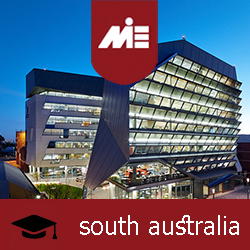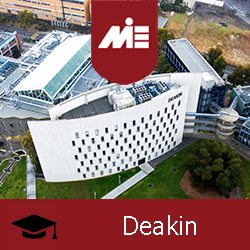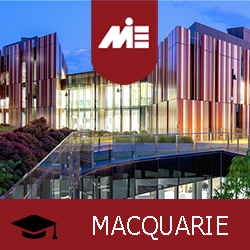in this Section you can Read the information about the University of Sydney , courses and admission requirements of University of Sydney
How good is University of Sydney?
How do we introduce University of Sydney college?
Is University of Sydney a good and proper one for your target?
In this short text we will provide you some necessary information about the University of Sydney whose main campus is in Australia.
Please note that this information is our findings on University of Sydney,you may also research more about the mentioned institute yourself and gain more data about it.
We would like to emphasize that we intend to be honest and impartial toward our customers, so for more information, we encourage you to do your own research.
University of Sydney is one of our trusted academic institutes and the link to its website can be found at the end of this article.
International mixture of students has always been their target to have a multicultural atmosphere and experience for applicants and to provide proper, professional and credible educational services to students.
If you want to apply to this university, we recommend you read this review first to know more about the choice you are making as research about any steps for your future has always been advised.
In order to give you precise data about University of Sydney, our staffs researched and gathered some information directly from the the official web page and flyers of the university itself so you can be sure that the information is valid and up to date.
Before we begin to give you more details about this university, please note that if we somehow mention some negative points beside positive pointes about the institutes in our page, we do not mean to damage their reputation. we just want to reflect our client’s opinion about institutes.
University of Sydney was built in 1850 in Sydney.
What is the ranking of University of Sydney?
According to QS world university rankings website the ranking of University of Sydney is 5 in Australia and 50 in the world
Architecture, design and planning
- Design
Arts and social sciences
- Agricultural and Resource Economics
- American Studies
- Ancient Greek
- Ancient History
- Anthropology
- Arabic Language and Cultures
- Archaeology
- Art History
- Asian Studies
- Australian Literature (minor only)
- Biblical Studies and Classical Hebrew
- Celtic Studies (minor only)
- Chinese Studies
- Criminology (minor only)
- Cultural Studies
- Digital Cultures
- Diversity Studies (minor only)
- Economic Policy (not available for Bachelor of Economics students)
- Economics
- Econometrics
- English
- European Studies
- Film Studies
- Financial Economics
- French and Francophone Studies
- Gender Studies
- Germanic Studies
- Hebrew (Modern)
- History
- Indigenous Studies
- Indonesian Studies
- International and Comparative Literary Studies
- International Relations
- Italian Studies
- Japanese Studies
- Jewish Civilisation, Thought and Culture
- Korean Studies
- Latin
- Linguistics
- Modern Greek Studies
- Philosophy
- Political Economy
- Politics
- Sanskrit (minor only)
- Social Policy (minor only)
- Socio-legal Studies
- Sociology
- Spanish and Latin American Studies
- Studies in Religion
- Theatre and Performance Studies
- Visual Arts
- Writing Studies (minor only)
Business
- Accounting
- Banking (major only)
- Business Analytics
- Business Information Systems
- Business Law
- Finance (major only)
- Industrial Relations and Human Resource Management
- International Business
- Management
- Marketing
Education and social work
- Education
Engineering and information technologies
- Computer Science
- Information Systems
- Project Management
- Software Development
Medicine and health
- Anatomy and Histology
- Applied Medical Science
- Health
- Hearing and Speech
- Immunology and Pathology (major only)
- Immunology (minor only)
- Infectious Diseases
- Neuroscience
- Pathology (minor only)
- Pharmacology
- Physiology
Music
- Music
Science, agriculture, environment and veterinary science
- Animal Health, Disease and Welfare
- Animal Production
- Behavioural Sciences
- Biochemistry and Molecular Biology
- Biology
- Cell and Developmental Biology
- Chemistry
- Data Science
- Ecology and Evolutionary Biology (major only)
- Environmental Studies
- Financial Mathematics and Statistics
- Food Science
- Genetics and Genomics
- Geography
- Geology and Geophysics
- History and Philosophy of Science
- Marine Science
- Mathematics
- Medicinal Chemistry
- Microbiology
- Nutrition Science
- Physics
- Plant Production
- Plant Science (minor only)
- Quantitative Life Sciences
- Soil Science and Hydrology
- Statistics
- Virology (minor only)
- Wildlife Conservation (minor only)
Students can start their course in University of Sydney in March and July.The cost of study in University of Sydney ranges from A$ 35,000 to A$49,000 per year for international undergraduate students. Tuition fee for undergraduate medicine courses may be up to A$76,000 per year.
For postgraduate courses, tuition fee starts from A$32,000.Required of documents for applying in University of Sydney is as follows:
Undergraduate courses:
- From 2019, students need to complete the NSW Higher School Certificate (HSC) Mathematics (not General Mathematics) or equivalent interstate or IB subjects in order to meet the requirements for admission into a number of our courses, including economics, commerce, engineering and IT, psychology, pharmacy, veterinary science and science.
- For some courses or units of study, the university assumes that you have reached a certain level of knowledge or have passed a relevant subject at Australian Year 12 level or equivalent.
Postgraduate courses:
- a minimum grade point average in your previous degree
- relevant professional experience – such as at least three years in a management role to enter a Master of Business Administration (MBA) degree
- health and security checks for anyone doing fieldwork in New South Wales hospitals or schools
- a portfolio of work – for example, for entry to our urban design architecture courses.
English language requirements:
- The University’s standard IELTS requirement is an overall score of 6.5 with no band below 6.0, however some faculties and courses have different requirements.
- Accommodation specifically for university students typically provides a furnished room including bed and desk. You will most likely need to provide your own bedding, towels etc.
- Accommodation in a studio or shared apartment in University of Sydney-owned residences costs between $205 – $431 per week.
- Residential colleges are private colleges on campus and cost between $397 – $687 per week, which includes three meals per day.
- Other independently-run student housing costs between $90 – $616 per week for options including self-contained studios, shared apartments and shared cooperative housing.
Homestay
The Sydney Homestay costs between $195 – $500 per week, depending on your location and boarding arrangement.






Leave a Reply
Want to join the discussion?Feel free to contribute!